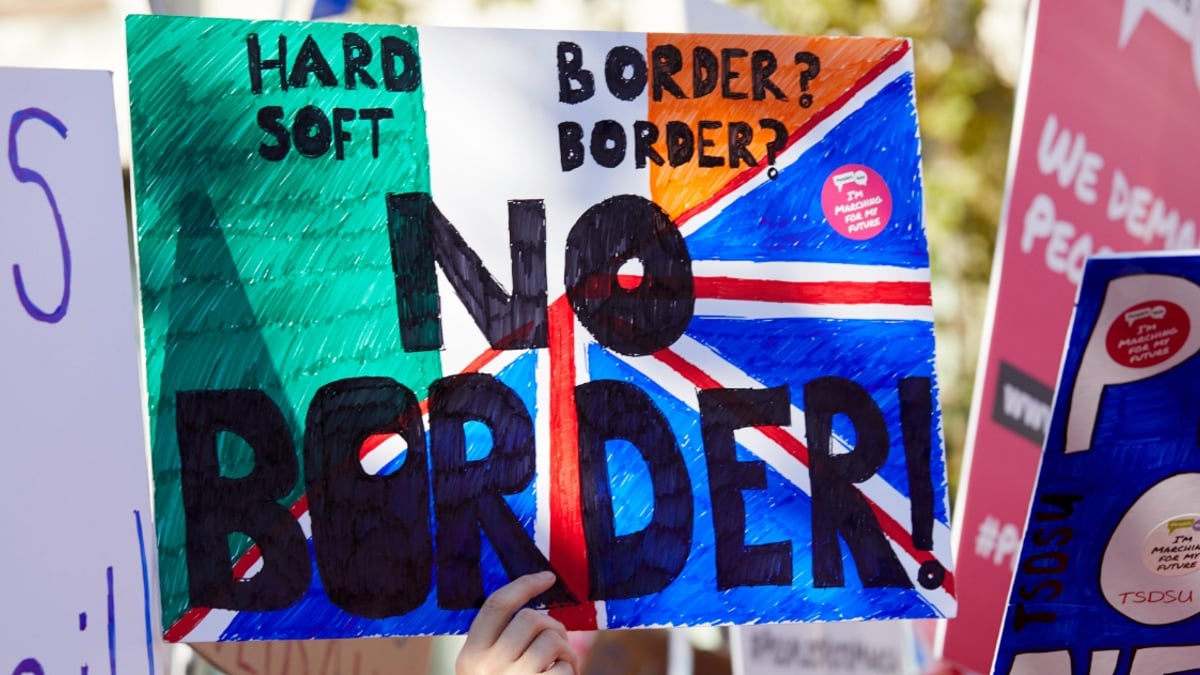What Are The Latest Odds On A United Ireland?

Betting sites don’t expect to see a vote on Irish unification held before the decade is out, with the odds on a United Ireland widening month after month.
Polling data released over the summer suggested a growing proportion of people in Northern Ireland expect an Irish Unification referendum to pass within the next 10 years.
However, scepticism remains in the Republic and bookies appear to be edging away from the idea of a referendum any time soon.
Irish unification has become a hot topic in recent years since the Brexit referendum exposed disharmony within Stormont.
The Northern Ireland Assembly has been in turmoil for years and there is growing support for Sinn Fein north of the border.
Problems with Brexit and an impending UK election next year means the country is yearning for political stability which is yet to be delivered.
In times of instability, voters often seek alternative options to the status quo, and arguments for and against a United Ireland are growing louder right now.
It may well be that a proposed referendum becomes a manifesto pledge that sways voters one way or the other, although we are yet to see any party offer concrete plans for this.
Yet despite the unpredictability of Northern Ireland politics right now, new betting sites in the UK and Ireland aren’t expecting Stormont and Leinster House to come to an agreement on a referendum any time soon.
United Ireland Odds
As political betting sites suggest, there appears little chance of a United Ireland referendum being held before 2027.
This correctly reflects the road a referendum would have to go down were Northern Ireland to signal a willingness to hold a vote.
The Good Friday Agreement states that a majority of Northern Ireland voters is required to consent to Irish unification in order to get the ball rolling to scrapping the border.
For a referendum to even take place Sinn Fein would likely need a big majority in Stormont at the next UK election, in order to outweigh opposition votes.
Suggestions that a referendum should be weighted so unification would only be passed with a 60% backing have received support and criticism.
Whether a vote happens or not, what is for sure is these sorts of referendums aren’t done in a flash – as Scotland’s SNP have discovered.
Sinn Fein may come to dominate the next UK general election but may have to wait years until a referendum can be held.
That’s why, in all probability, the debate on Irish Unification will not be settled soon.
However, BoyleSports reckon the chances of a vote being held by 2030 is a toss-up. The bookmaker has odds of 5/6 on a two state border poll either taking place or not.
That may read as promising odds for republicans but Boyles also reckon the chances of unification being approved by January 1, 2030 are as slim as 88.9%. The sportsbook prices a No vote at 1/8, while Yes is out at 9/2.
How Scottish Independence Impacts Irish Unification
What is more likely to come up before Irish unification is another vote on Scottish independence.
The Scottish Nationalist Party (SNP) are pushing hard for IndyRef 2 but Westminster is fighting back, insisting there is no remit for another vote.
Civil war within the SNP since Nicola Sturgeon’s exit and a string of defections to Alba means Humza Yousaf’s party is facing the prospect of losing seats at the next election.
Yousaf argues an SNP majority in Scotland next year would be all the permission his party needs to launch a second referendum.
But Labour is gaining on the nationalists and, while support for independence hasn’t shifted much, there’s a growing sense that it won’t be the hot topic on the doorstep come the election.
Were Scotland to vote to leave the United Kingdom then it’s almost inconceivable that Westminster would approve of a unification vote in Northern Ireland too.
One can argue it’s not for Westminster to decide but the UK government would push hard to avoid a vote and, in the case of a referendum, campaign vigorously for Northern Ireland to remain in the union.
Should the SNP lose the second referendum then there may be more leeway for a vote in Ireland. But even then, the UK will only countenance this if they’re sure the pro-union side would win.
It means efforts for Irish unification are currently stuck, according to betting apps. There is a long way to go before politicians would even begin seriously discussing a referendum, and even further for the UK government to agree to it.
But with every election win Sinn Féin secure north of the border, the louder the calls will grow. And, like Scotland, that appears the most sensible - if convoluted - way to achieve independence.












